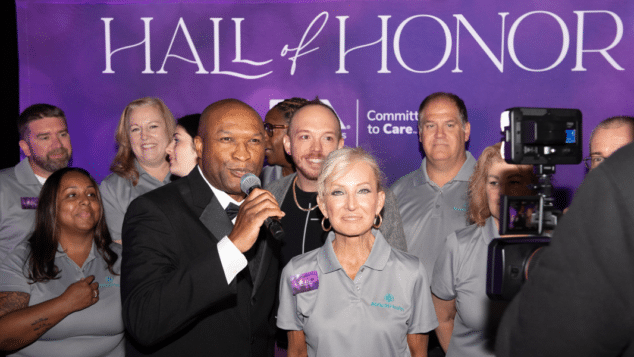Hotel Contracts in the Age of COVID-19

Q: What has COVID-19 taught you about negotiating future hotel or event contracts?
A: The word that has been used over and over in connection with COVID-19 is “unprecedented.” Meeting cancellations, hotel and convention center closures, and institutional travel bans issued in the wake of federal, state and local shutdowns have been more pervasive in number, geographic scope and length of time than in any other period in recent history. While there is an expectation that life will return to “normal” in the post-COVID era, certain effects are likely to be long-lasting and should be considered when negotiating future hotel and event contracts.
For example, with many associations having successfully conducted virtual or hybrid meetings, in-person meeting participation may have declined indefinitely. As a result, associations may no longer be able to predict future in-person meeting attendance based on past history and should consider adjusting their room block commitments accordingly. In addition, they should try to negotiate more favorable terms for unilaterally reducing those commitments in a manner that provides greater flexibility to make adjustments without triggering unmanageable attrition penalties. Similarly, associations should think carefully about the level of food and beverage guarantees in future contracts, along with whether – and, if so, when – they will have the opportunity to modify those guarantees.
Associations should also reconsider the cancellation provisions in their hotel contracts, particularly how liquidated damages are calculated. Many hotel contracts calculate those damages on a lost revenue basis, but it is fairer and more accurate to calculate the hotel’s loss on a lost profit basis. Hotels do not make $200 on rooms with a $200 room rate, so they should not claim $200 per room in damages in the event of cancellation. And, certainly, when calculating food and beverage losses, lost revenue is not the appropriate measurement when a hotel can avoid ordering food and, in some cases, also can avoid paying catering staff if they have as little as a few days’ advance notice of cancellation.
COVID-19 discussions also highlighted sometimes flawed relationships between attrition and cancellation penalties. In some contracts, attrition penalties are no less significant, and at times more severe, than the corresponding cancellation penalties. Under those circumstances, groups have a disincentive to proceed with a smaller meeting and pay attrition fees; it makes better financial sense to cancel. Neither the group nor the hotel should want that result.
Finally, one of the most important lessons learned from the pandemic is the importance of a carefully worded force majeure clause. Ideally, the clause should have the following elements:
(i) A broad list of events that constitute a basis for termination. In recent years, “act of God” clauses have expanded to include several specific grounds upon which termination can be based. Although the specific event that is “beyond the control of parties” — and thus forms the basis for termination — does not have to be listed, it certainly is to a group’s advantage when it is. Going forward, we suggest a fairly exhaustive list that acknowledges lessons learned from COVID-19, 9/11, extreme weather events and the like. That includes the following: acts of God; war; government regulation (including, but not limited to, executive orders); disasters; fires; earthquakes; hurricanes; disease; strikes or threat of strikes (except those involving the employees or agents of the party seeking the protection of this clause); terrorism or threats of terrorism; public health events; civil disorders; use of the premises as a hospital or place of accommodation for medical patients, medical personnel, or homeless people within 6 months of group’s arrival; curtailment of transportation facilities preventing or unreasonably delaying at least 25% of event attendees or guests from participating in the event; or other similar causes, including emergency or non-emergency conditions beyond the control of the parties.
(ii) A standard that allows for termination under circumstances broader than “impossibility.” Force majeure provisions vary not only in their grounds for termination, but also with respect to the termination standard upon which the extent of event disruption is based. Specifically, in many cases, force majeure applies only if one or more grounds for termination make it impossible or illegal to hold the meeting or event. We recommend a broader standard, i.e., one that allows for termination if the ground(s) make it inadvisable, illegal, impossible or commercially impractical for the group to hold the event, for the hotel to provide the meeting and sleeping rooms or related facilities and/or services for the event, or for either party to fully perform the material terms of the agreement.
(iii) An acknowledgment that no fees or penalties are due upon termination and that any deposits paid to the hotel prior to termination are to be refunded.
(iv) An acknowledgment that if the group elects to proceed with the event when one or more force majeure events exist, it will not be liable for attrition, and food and beverage minimums will be waived.
(v) A special “COVID-19” provision for meetings booked within the next several months. These provisions are intended to allow groups to terminate if the occurrence of COVID-19 results in a communication from a government or public health authority that would restrict, interfere with, or inhibit the group’s ability to hold the event or attendees to travel to and/or attend the event. With those special provisions, it is helpful to include a date, sufficiently in advance of the meeting, after which the group may terminate without penalty.
This last item raises a key issue with respect to force majeure rights during the COVID-19 crisis: the challenge of determining the “right” time to assert those rights. Generally, the party exercising force majeure rights can rely only on the facts and circumstances that exist at the time the facility is notified. Given the nature of the crisis, it is important not to terminate too early or too late relative to the event dates. If the group notifies the facility too far in advance, the facility is likely to argue that there is still opportunity for the crisis to abate and for the event to occur. Even if things get worse later, the group may be unable to rely on those changed, worsened circumstances. At the same time, the group cannot wait too long to exercise its rights because it needs to notify attendees, exhibitors, sponsors, etc., that a decision has been made.
Educational meetings and other events are integral to the livelihood of associations. Thus, it is critical that associations protect their rights in this changing market. Contracts should be drafted to involve only manageable potential penalties and allow for flexibility if and when the next “big crisis” occurs. 
Tags
Related Articles
Double Your Footprint: Enhancing Conferences with a Hybrid Event Workflow
By combining on-site engagement with a digital experience, hybrid events can attract diverse audiences, boost...
The Emergency Nurses Association Utilizes Design Thinking to Reimagine its Awards Ceremony
In a prime example of intrapreneurship, the ENA utilized design thinking to innovate within the...
Top Ten Skills Needed to be a Meeting Planner of the Future
Now, more than ever, meeting planners need to be flexible and savvy. Read on for...





